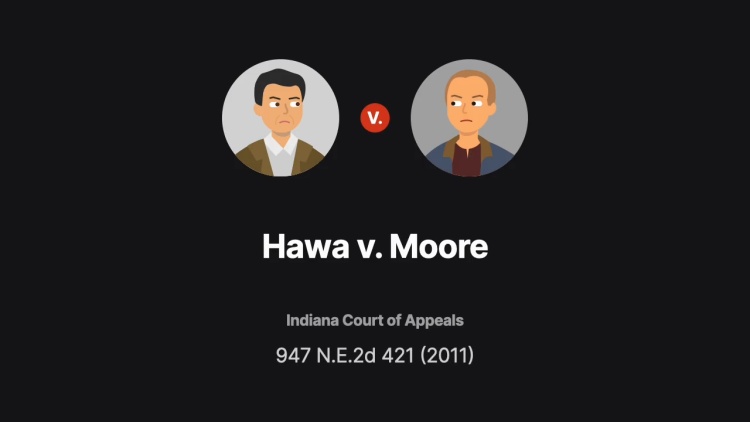Hawa v. Moore
Indiana Court of Appeals
947 N.E.2d 421 (2011)

- Written by Josh Lee, JD
Facts
Mike Hawa (plaintiff) entered into a contract with Gerald Moore (defendant) to install a rough base for a parking lot. The contract stated that the base would consist of recycled concrete. Under the contract, $5,000 was due immediately, and another $5,000 was due after half of the work was completed. The remaining balance was due after 75 percent of the work was completed. Hawa made the initial payment, and Moore had nine piles of recycled concrete delivered to Hawa’s property. Hawa noticed that there was wire mixed in with the rocks and told Moore that Hawa would not make the second payment. Moore explained that the wire would be separated using a power-rake blender and had six of the nine piles spread out on the property. Moore then asked about the second payment. Hawa stated that the second payment would be made after 80 percent of the work was completed. Later, Hawa told Moore that Hawa’s bank needed to see the power-rake blender before advancing the funds for the second payment. Moore had the machine moved to the front of the property and was available to meet with Hawa and a representative from the bank. However, no one from the bank came. After five days passed, Moore left the job site. Hawa then sued Moore in small-claims court for breach of contract. Moore filed a counterclaim for breach of contract. The small-claims court ruled in favor of Moore and awarded $4,745 in damages. Hawa appealed.
Rule of Law
Issue
Holding and Reasoning (Vaidik, J.)
What to do next…
Here's why 907,000 law students have relied on our case briefs:
- Written by law professors and practitioners, not other law students. 47,100 briefs, keyed to 996 casebooks. Top-notch customer support.
- The right amount of information, includes the facts, issues, rule of law, holding and reasoning, and any concurrences and dissents.
- Access in your classes, works on your mobile and tablet. Massive library of related video lessons and high quality multiple-choice questions.
- Easy to use, uniform format for every case brief. Written in plain English, not in legalese. Our briefs summarize and simplify; they don’t just repeat the court’s language.





